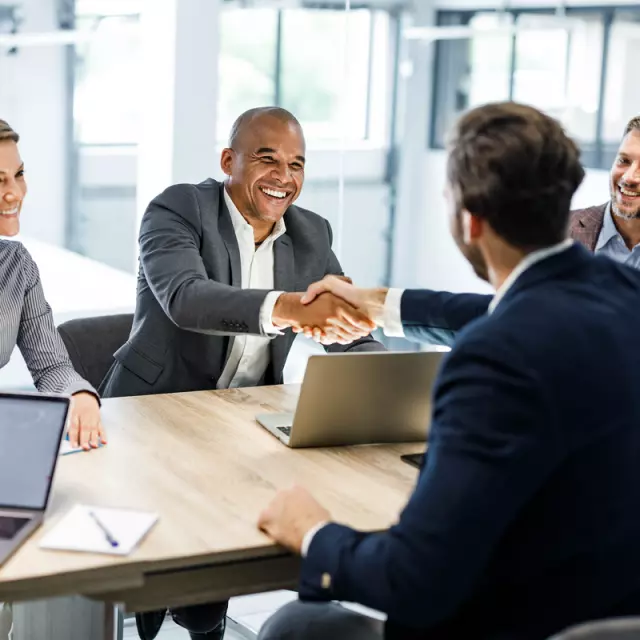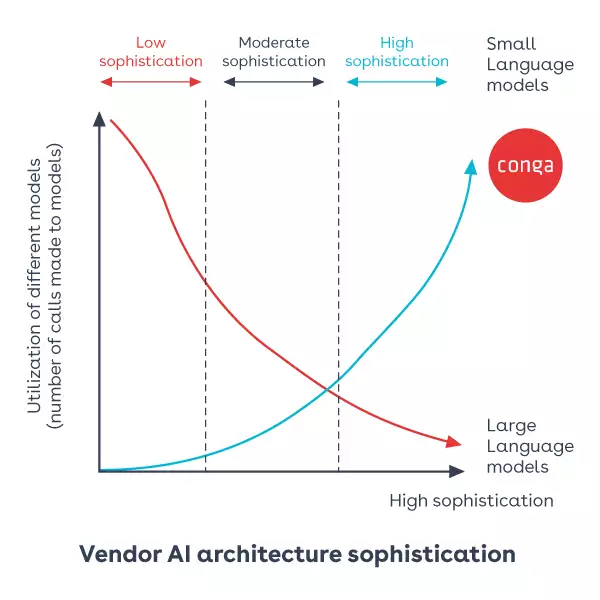
AI-Powered Contract Management: Transforming Modern Business

Overview: A Brief History of CLM Technology
Contracts have evolved from being a burdensome task to becoming the backbone of modern business efficiency, thanks to Contract Lifecycle Management (CLM) technology.
Over the past few decades, CLM has completely transformed how contracts are managed. What was once a tedious, manual process—think endless paperwork, clunky spreadsheets, and never-ending email chains—has evolved into a streamlined, tech-driven operation.
Early CLM systems were basic, offering little more than storage and simple retrieval. However, as businesses recognized the critical importance of effective contract management, the demand for more advanced CLM solutions skyrocketed.
Global disruptions and critical risk events have acted as major catalysts for innovation in CLM. What started as a niche market has exploded into a driving force behind digital transformation.
As Ziad Mantoura, SVP & GM at Epiq, points out, "Over the past decade, we’ve gone from a small number of CLM technology players to a plethora of players." The rise of CLM as a revolutionary platform is nothing short of remarkable.
Key Developments
The Growing Recognition of CLM’s Value
Organizations have moved beyond viewing contract management as merely about compliance and risk mitigation; they now see it as a key driver of business value.
Efficient CLM processes can lead to significant cost savings, better negotiation outcomes, and stronger business relationships.
A study by the World Commerce & Contracting found that poor contract management can cost companies up to 9% of their annual revenue. That’s a wake-up call for anyone still relying on outdated methods.
The Cloud Revolution and AI’s Emergence
The shift to cloud-based solutions has been a game-changer for CLM technology. Cloud platforms offer scalability, flexibility, and the ability to manage contracts from anywhere, at any time.
This accessibility has made powerful CLM tools available to a wider range of organizations, from global enterprises to small and medium-sized businesses.
Gartner predicts that by 2025, 85% of enterprises will be using cloud-based CLM solutions. The cloud has laid the groundwork for further innovation, and this is where AI comes into play.
Building on the cloud's foundation, AI has become the next big leap in CLM.
Cloud technology provides the necessary infrastructure for AI to operate efficiently, allowing various AI models to analyze vast amounts of contract data, automate routine tasks, and deliver insights that were previously out of reach.
This synergy between cloud and AI is transforming contract management from a reactive process to a proactive, strategic function.
Targeted AI Solutions in CLM
When implementing AI, it’s vital to focus on specific use cases where it can provide the most value with the least risk. The goal is to automate error-prone, labor-intensive processes, making them more efficient and cost-effective.
Here’s how Conga’s AI solutions address these specific pain points:
- Discovery AI: Reducing Human Error in Contract Discovery
Conga’s Discovery AI automates the identification and extraction of relevant information from large volumes of contracts. This reduces the risk of human error and accelerates the discovery process.
For example, a global procurement team using Discovery AI would be able to reduce the time spent on contract discovery, allowing them to focus on more strategic tasks like supplier negotiation.
- Contract and Negotiate AI: Speeding Up Contract Reviews
Conga’s Contract and Negotiate AI assists in reviewing and negotiating contracts, ensuring accuracy and compliance. It identifies the biggest risks in contracts and automates the redlining process.
For instance, a legal department at a large enterprise could use this AI to cut their contract review time, enabling faster deal closures and reducing the risk of missed contract terms.
- Contract Library AI: Enhancing Data Accessibility
Conga’s Contract Library AI manages and explores contract data, making it highly accessible for analysis. With AI, customers can identify patterns, monitor risks, and avoid legal liabilities.
For example, a multinational corporation can leverage this AI to analyze thousands of contracts, identifying trends that helped them renegotiate more favorable terms with key suppliers, resulting in significant cost savings.
The Shift to Smaller and Hybrid AI Models
The future of AI in CLM lies in hybrid models that combine the strengths of both large language models (LLMs) and smaller, specialized models (SLMs).
Smaller models have several advantages—they’re easily trainable with customer-specific data, paving the way for personalized and flexible experiences. This customization is critical for businesses aiming to meet their clients’ unique needs.
At Conga, we’ve developed over 1,400 pre-trained models and a sophisticated training architecture that allows customers to instantly train new models for specific term extractions with just two examples. One of our customers, a large financial services firm, saw a 30% improvement in contract processing speed by leveraging this feature from our June 2024 release.
Smaller models also offer better cost visibility and can be provisioned on a tenant-by-tenant basis, allowing each customer to have a set of highly trained, small models tailored to their specific tasks.
Developing this infrastructure takes time, but companies like Conga are leading the charge, creating systems that leverage both small and large models to deliver exceptional results.
For example, Conga’s CLM solutions include functionality for building and continually refining standardized legal playbooks. This saves time, reduces risk, and minimizes costly rework.
Using playbooks and existing contracts, Conga’s system automatically creates standard or bespoke contract templates that can be quickly modified to ensure efficiency and consistency.

Adoption Timeline
Current Availability of Underlying Technology
Generative AI technology has rapidly evolved, providing a robust foundation for advanced CLM applications. Today, sophisticated AI models are integrated into CLM systems, streamlining contract analysis, and management, paving the way for a transformative shift in legal operations.
Slow Adoption Pace in the Legal Industry
Despite AI’s capabilities in contract management, the legal industry has been slow to adopt these innovations due to its conservative nature, concerns about data privacy and security, and the need for high accuracy and reliability.
Legal professionals are understandably cautious, as errors in contract management can lead to significant financial and reputational risks. A report by Deloitte found that only 20% of legal departments are currently using AI in their workflows.
Evaluating CLM Providers’ AI Capabilities
As the regulatory landscape becomes more complex and data security concerns grow, organizations must evaluate the AI capabilities of their CLM providers.
Companies should ensure that their chosen CLM solutions leverage advanced AI and adhere to stringent security protocols and regulations. This diligence will help organizations avoid pitfalls and maximize the benefits of AI-powered CLM.
Conga and Ethical use of AI
Conga is committed to being the industry leader in the ethical use of AI, ensuring that our customers’ data is always preserved and secure.
This dedication is why we’ve made significant investments in developing our own AI models (along with integrating with LLMs), allowing customers to train AI with their proprietary data to create models uniquely tailored to their needs.
By doing so, customers maintain control over their data, ensuring that it’s used to meet their specific business requirements while prioritizing privacy and security.
The decision to build and refine customer-specific models underscores Conga’s pledge to data protection. With these tailored models, our clients can leverage AI uniquely equipped to handle their contractual needs, all while following best practices for ethical and secure use of sensitive business information.
Industry Perspective
Varied Responses from CLM Vendors
CLM vendors have responded to AI advancements in different ways. Some see AI as a novelty with limited functionality, while others are making strategic investments, recognizing its potential to revolutionize contract management.
Buyers need to critically assess vendor claims and focus on those committed to integrating cutting-edge AI into their CLM offerings. According to Forrester, 70% of CLM vendors plan to enhance their AI capabilities within the next two years.
Broader Implications of AI in Core Business Operations
From contract management to data analysis and customer service, AI's reach extends across various departments, driving significant improvements in operational efficiency and strategic decision-making.
Let’s explore how AI is revolutionizing three key areas within an organization:
- Sales: Accelerating Deal Cycles
For sales teams, time is of the essence. Every day a deal is delayed could mean lost revenue. AI is a game-changer here, particularly in the realm of Contract Lifecycle Management (CLM).
The top benefit for Sales? Faster deal cycles.
AI automates contract creation and negotiation processes, cutting down the back-and-forth traditionally involved in contract approvals. This means sales teams can close deals faster, turning potential revenue into realized gains more swiftly.
With AI in the driver’s seat, sales teams are no longer bogged down by administrative hurdles and can focus on what they do best—selling.
- Procurement: Securing the Best Value
Procurement teams are constantly seeking ways to secure the best value for their organizations. AI enhances their ability to do so by optimizing supplier contracts and automating the negotiation process.
The top benefit for procurement? Streamlined supplier contracts.
AI not only helps procurement teams negotiate better terms but also ensures that all supplier agreements are managed efficiently.
This means fewer missed renewals, better compliance with agreed terms, and ultimately, cost savings for the organization. With AI, procurement teams can operate with greater confidence, knowing that they’re securing the best possible deals.
- Executive Leadership: Strategic Insights for Better Decision-Making
For executive leadership, the ability to make informed decisions quickly is critical to the success of the organization. AI in CLM provides a significant advantage by offering strategic insights that guide decision-making.
AI-driven CLM systems analyze vast amounts of contract data to uncover trends, risks, and opportunities that might otherwise go unnoticed.
This empowers executives with the knowledge they need to steer the company in the right direction, ensuring that every decision is backed by data-driven insights.
Changing Terrain of CLM Technology
The landscape of CLM technology is rapidly evolving, and the integration of AI is the next frontier. As organizations increasingly recognize the value of efficient contract management, they are turning to AI-powered CLM solutions to stay ahead of the curve.
Conga’s targeted AI solutions address the specific pain points businesses face, offering real-world benefits that improve efficiency, reduce risk, and drive strategic decision-making.
If your organization hasn’t yet explored the potential of AI in contract management, now is the time. The future of CLM is here, and it’s powered by AI.
About the authors
Ziad Mantoura
Senior VP & General Manager, Enterprise Legal & Consulting Solutions @ Epiq
Ziad is an SVP at Epiq, the $1B legal services firm. Before joining Epiq in 2020 to lead Epiq’s Legal Transformation Services business, Ziad was an SVP at Axiom where he was part of the executive team that led the spin out and establishment of Factor as a stand-alone entity. In addition to his experience in legal operations, technology and services, Ziad was a management consultant at the Boston Consulting Group and an attorney at CMS Cameron McKenna in London. Ziad earned his MBA from Cambridge University and his law degree from Nottingham Law School in the UK.
Mahdi Sharif
VP, Product Management @ Conga
Mahdi holds a PhD degree from University of Waterloo, faculty of Engineering and currently serves as the Vice President of Product Management at Conga, where they oversee the AI Platform and data initiatives. With a robust background in building complex data products, Mahdi has contributed to the success of startups, research labs, and large enterprise software companies.



